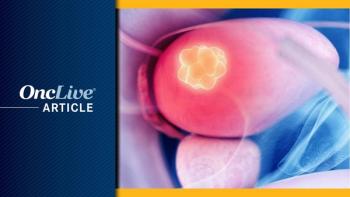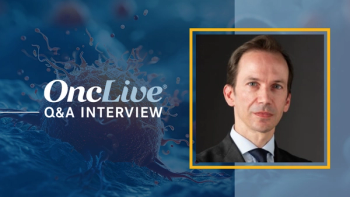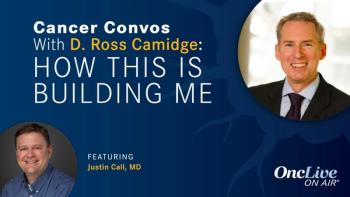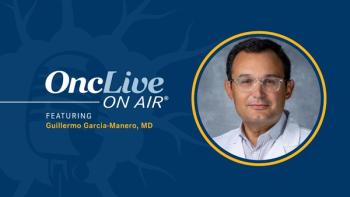
FDA Approval Insights: Enfortumab Vedotin Plus Pembrolizumab in Urothelial Carcinoma

Dr Friedlander discusses the FDA approval of enfortumab vedotin plus pembrolizumab in patients with locally advanced or metastatic urothelial carcinoma, key efficacy and safety data from the EV-103 trial, and the importance of incorporating this regimen into the frontline setting for this population.
Welcome to OncLive On Air®! I’m your host today, Ashling Wahner.
OncLive On Air® is a podcast from OncLive®, which provides oncology professionals with the resources and information they need to provide the best patient care. In both digital and print formats, OncLive® covers every angle of oncology practice, from new technology to treatment advances to important regulatory decisions.
In today’s episode, sponsored by Seagen, we had the pleasure of speaking with Terence Friedlander, MD, about the FDA approval of enfortumab vedotin-ejfv (Padcev) plus pembrolizumab (Keytruda) in patients with locally advanced or metastatic urothelial carcinoma.
Dr Friedlander is chief of Hematology-Oncology and associate director for Cancer Research at Zuckerberg San Francisco General, Helen Diller Family Comprehensive Cancer Center, as well as an associate clinical professor in the Division of Hematology/Oncology at the University of California San Francisco.
On April 3, 2023, enfortumab vedotin plus pembrolizumab received accelerated approval from the FDA for the treatment of patients with locally advanced or metastatic urothelial carcinoma who are ineligible for cisplatin-containing chemotherapy. This approval was backed by findings from the dose-escalation, A, and K cohorts of the phase 1/2 EV-103/KEYNOTE-869 trial (NCT03288545). In these cohorts, treatment with the combination led to a confirmed objective response rate of 68% (95% CI, 59%-76%), consisting of a 12% complete response rate and a 55% partial response rate. Furthermore, the median duration of response was 22.1 months (range, 1+-46.3+) in the dose-escalation cohort and cohort A and not yet reached (range, 1.2-24.1+) in cohort K.
In our exclusive interview, Dr Friedlander discussed the significance of this approval, key efficacy and safety data from EV-103, and the importance of incorporating such an active combination regimen into the frontline setting for this population.
___
That’s all we have for today! Thank you for listening to this episode of OncLive On Air®, sponsored by Seagen. Check back on Mondays and Thursdays for exclusive interviews with leading experts in the oncology field.
For more updates in oncology, be sure to visit www.OncLive.com and sign up for our e-newsletters.
OncLive® is also on social media. On Twitter, follow us at @OncLive and @OncLiveSOSS. On Facebook, like us at OncLive and OncLive State of the Science Summit and follow our OncLive page on LinkedIn.
If you liked today’s episode of OncLive On Air®, please consider subscribing to our podcast on Apple Podcasts, Spotify, Google Podcasts, Amazon Music, and many of your other favorite podcast platforms,* so you get a notification every time a new episode is posted. While you are there, please take a moment to rate us!
Thanks again for listening to OncLive On Air®.
*OncLive On Air® is available on: Apple Podcasts, Google Podcasts, Spotify, Amazon Music, Audacy, CastBox, Deezer, iHeart, JioSaavn, Listen Notes, Player FM, Podcast Addict, Podchaser, RadioPublic, and TuneIn.



































